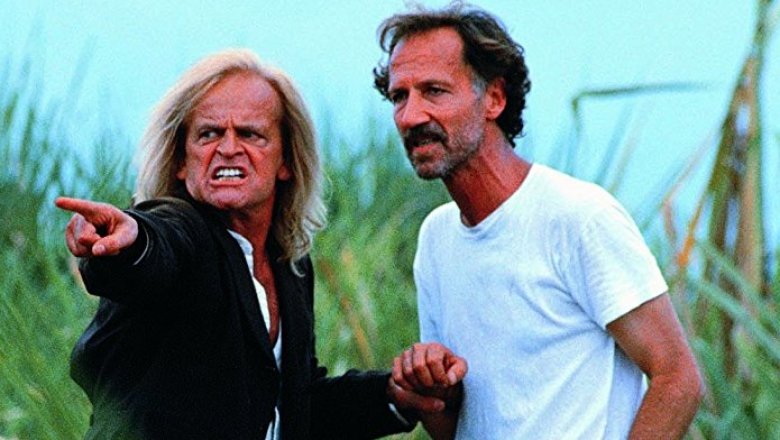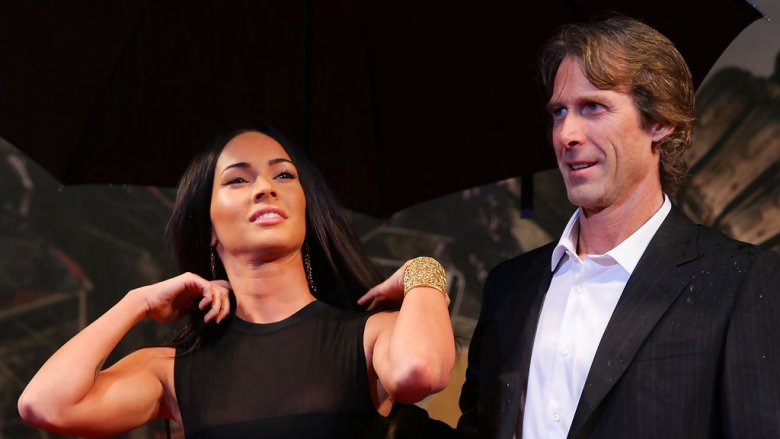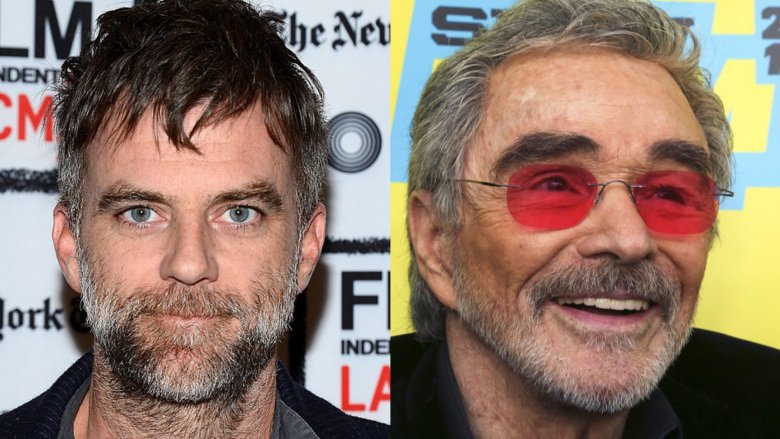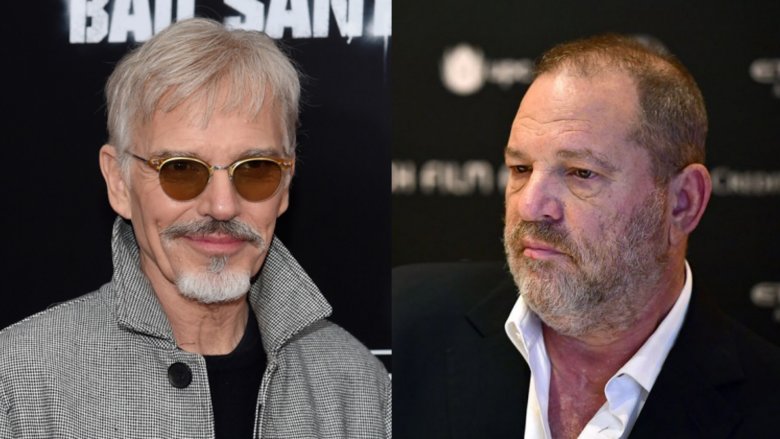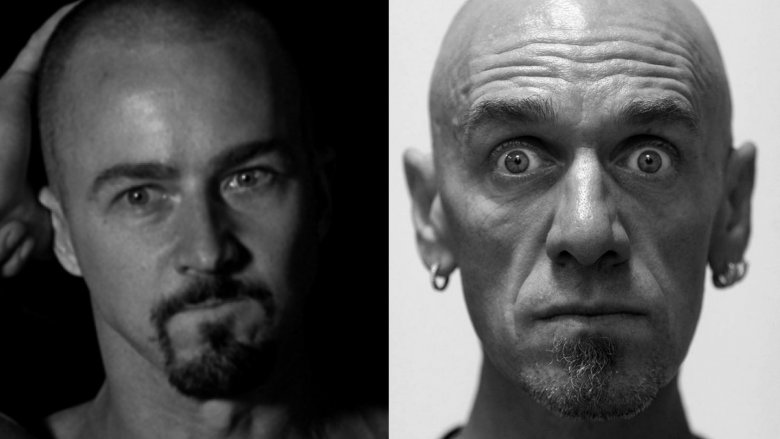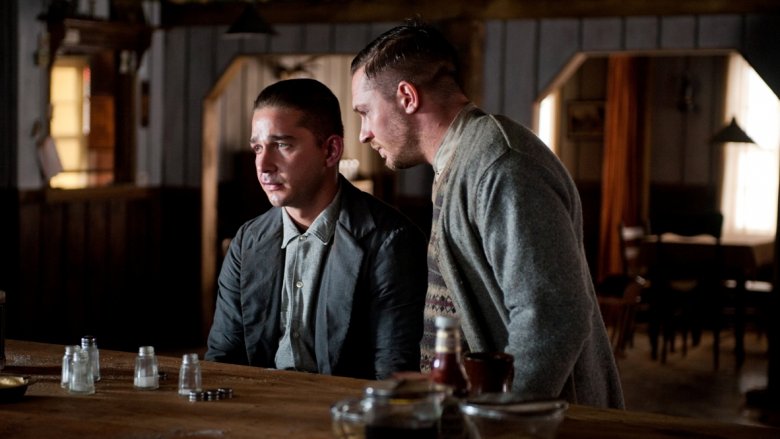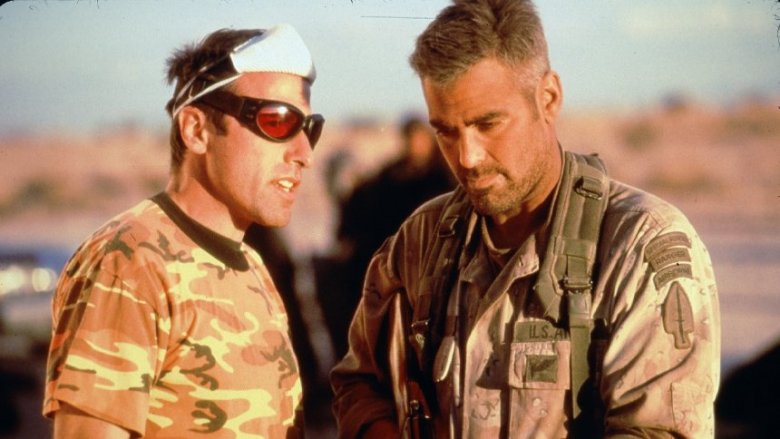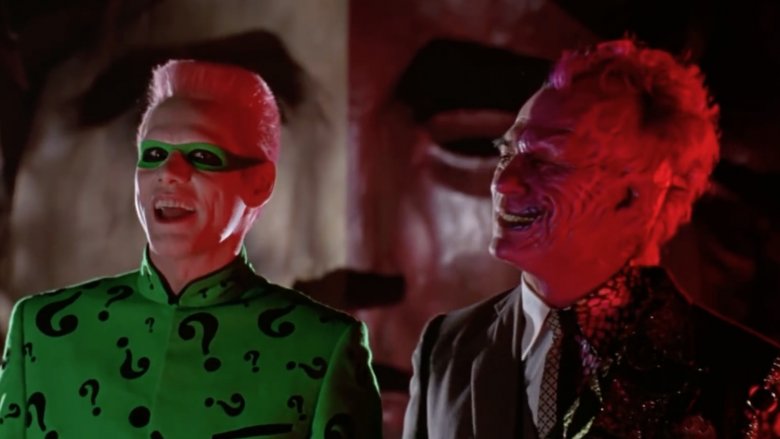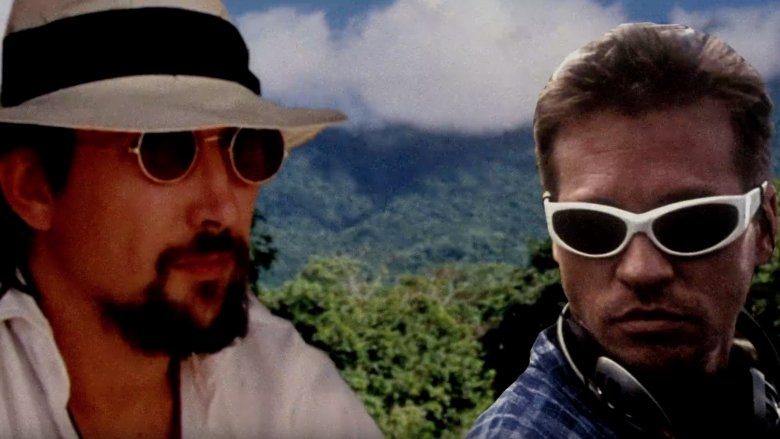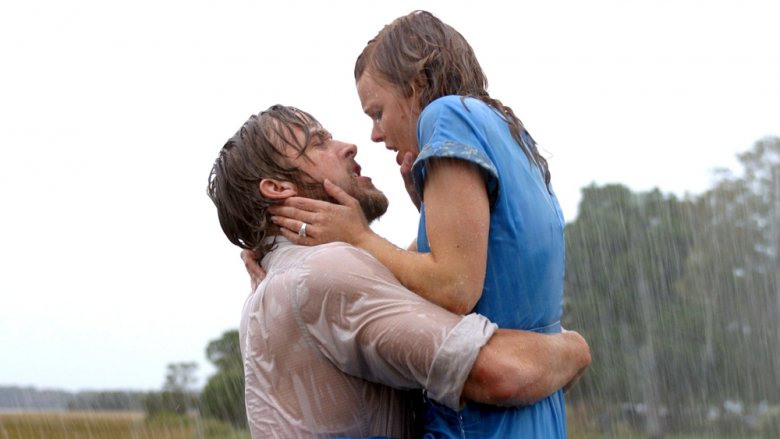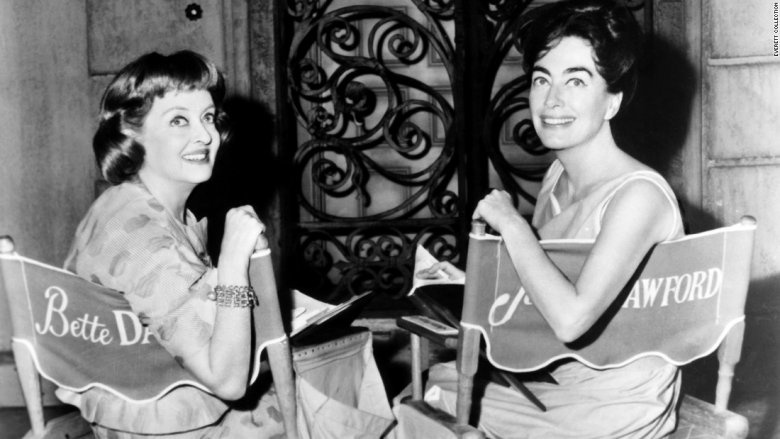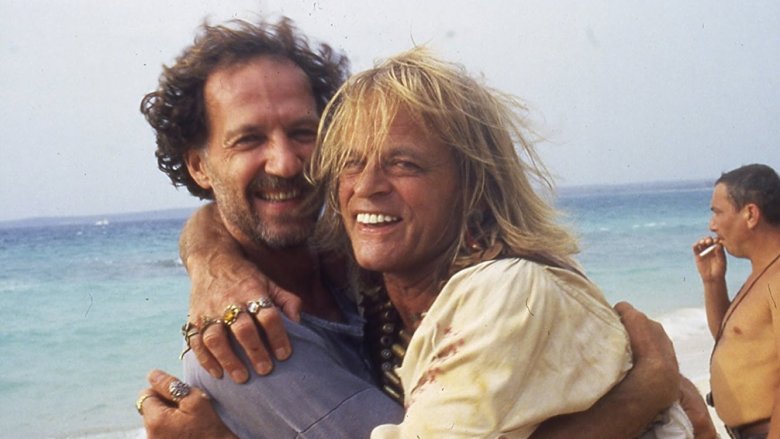The Most Vicious Battles Behind The Camera
If 2017 taught us nothing else, it's that Hollywood is a difficult (potentially dangerous) place to work. Even as Tinseltown works overtime to get its house in order, it should be noted that behind-the-scenes rifts are nothing new in Hollywood. With so much money and so many egos involved in making movies, major conflicts such as these have been going on since pictures started moving. Here are some of the more vicious behind-the-scenes battles in Hollywood history.
Megan Fox vs. Michael Bay - Transformers
Michael Bay has become Hollywood's go-to director when big-budget bombast and big box office returns are in order. When he brought his typical "Bayhem" to 2007's Transformers, he also brought the sex appeal by casting newcomer Megan Fox as the film's female lead. Transformers proved a box office behemoth, and Fox became an overnight sensation with it.
Turns out, things were not all that simpatico between director and actor, though. After reprising her role for 2009's Transformers: Revenge of the Fallen, Fox called out Bay in an interview, claiming the director "wants to be like Hitler on his sets, and he is." That comparison led to Bay and Transformers' Executive Producer Steven Spielberg dismissing Fox from the franchise (though Fox's reps would claim it was her decision to walk away).
After the Transformers kerfuffle, Fox delivered impressive turns in Jennifer's Body and Friends with Kids. For his part, Bay has always maintained that he "wasn't hurt" by Fox's comments, and this behind-the-camera battle was laid to rest when Bay brought Fox on board the Teenage Mutant Ninja Turtles franchise; though it's worth noting that Bay is not directing those films.
Paul Thomas Anderson vs. Burt Reynolds - Boogie Nights
In the past two decades, Paul Thomas Anderson has proven himself a vital voices in American cinema, and 1997's porn-centric drama Boogie Nights is the film that put him on the map. That film also put Burt Reynolds on the comeback trail, scoring the legendary actor his first Oscar Nomination. Even as Boogie Nights was bolstering their careers, stories were breaking that Reynolds and Anderson did not have a good relationship.
The culprit in their feud? It seems Reynolds' "old Hollywood" ego didn't jibe with Anderson's youthful exuberance. In a 2015 interview, Reynolds admitted as much by claiming, "I think mostly because he was young and full of himself. Every shot we did, it was like the first time [that shot had ever been done]." In a separate interview, he'd go on to say that he "hated" working with Anderson and that he "hates" Boogie Nights, though he also admits to having never watched the film.
In the years since Boogie Nights' release, the stories of Anderson's and Reynolds' battles have only gotten bigger and more vicious. If Grantland's Oral History of Boogie Nights is to be believed, Anderson and Reynolds subjected cast and crew to several shouting matches and at least one physical confrontation. For his part, Anderson has admitted that the rumors are, "almost true," and that he "absolutely" believes the tension was beneficial to the film. If Reynolds ever watches the film, we're pretty sure he'd agree.
Billy Bob Thornton vs. Harvey Weinstein - All The Pretty Horses
Harvey Weinstein's 2017 downfall may have been a long time in the making–and not just because of his alleged abhorrent treatment of women. Over the years, the infamous producer also developed a reputation for bullying young filmmakers (Guillermo Del Toro among them) and re-cutting their films.
By many accounts, Weinstein ruined a potential masterpiece when he got hold of Billy Bob Thornton's sprawling adaptation of Cormac McCarthy's All The Pretty Horses. Apparently, Thornton's original cut clocked in at a contemplative three hours long. That was an hour longer than Weinstein was comfortable with. After weeks of bickering, he ordered Thornton to trim the movie to under two hours and even scrapped Daniel Lanois' "haunting" original score, replacing it with more classically Western compositions. What was left after Weinstein's butchery was a critical and box office bomb that left Thornton and a young Matt Damon heartbroken.
Save for a few interviews, Thornton has remained relatively quiet about the experience. Damon has not. The actor was and remains upset over the meddling and the cut of the film that was released proclaiming that, "I'm just clearly never gonna get over it. It really f***ing depresses me." Though there is still hope that the director's cut will be released. Thornton still owns a print of that cut, and if he can talk Lanois into releasing the rights to his music, we may one day see All The Pretty Horses as it was intended.
Tony Kaye vs. Edward Norton/New Line Cinema - American History X
On the topic of relationships going sideways in post-production, say hello to American History X. The challenging film reportedly blew through its short shooting schedule without a hitch, and the version of the film that hit theaters in 1998 was a hit with critics, earning Edward Norton his second Academy Award Nomination. Yet, for some reason, the film's director, Tony Kaye, tried to have his name removed from that theatrical release.
How come? After spending a year on the film's post-production, being bombarded by notes from Norton and New Line about the cut, and spending a couple months of very public discord with said studio about the direction of the film, New Line locked Kaye out of the editing room. In Kaye's stead, Norton himself stepped in to deliver the theatrical cut of American History X; an act that led Kaye to demand his name be taken off the project. Sadly, a tricky Director's Guild rule prevented even that from happening.
Not willing to stand for this betrayal, Kaye took to the streets calling Norton a, "phenomenally talented guy, but a narcissistic dilettante," launching an anti-New Line campaign in Variety and even convincing the Toronto International Film Festival (where American History X was set to premiere) not to screen the film. In the end, all Kaye achieved was getting himself blackballed by Hollywood, and while we dig Norton's cut of American History X as much as anyone, we'd still love to see what Kaye's version would look like.
Shia LeBeouf vs. Tom Hardy - Lawless
Despite its stellar cast and Nick Cave-penned story of outlaw moonshiners, Lawless was, and is, not on many people's radar. Nevertheless, there've been rumors that a moonshine-drunk Shia LeBeouf had run amok on the film's set and that LaBeouf and costar Tom Hardy had come to blows during filming, an event that—to the surprise of all—left Hardy unconscious at the feet of the much smaller LaBeouf. That tale reached fever pitch after production wrapped when Hardy backed the story up with a candid first-hand account of the fisticuffs.
Of course, Hardy's tongue-in-cheek nature about the fight led many to believe it was a bit of a lark or just didn't happen as reported, and both actors quickly began to walk back the story. LaBeouf even went so far as to claim that pair's supposed dust-up was, "all love." With conflicting accounts of the alleged event, many were left scratching their heads as to what actually happened.
The truth, it seems, lay somewhere in the middle. In a 2016 Reddit AMA session, Lawless director John Hillcoat finally set the record straight, claiming "There was definitely a fight between them. It escalated to the point where they had to both be restrained."
George Clooney vs. David O. Russell - Three Kings
Don't expect George Clooney or David O. Russell to come out and claim their Three Kings throw-down was anything resembling love. Though the film is now regarded as some of the actor's and director's best work, Clooney maintains that Three Kings was "the worst experience of [his] life."
The pair's on-set scuffle has been well documented over the years, but just to recap: the problem started because Clooney wasn't happy with how Russell treated Three Kings' cast and crew throughout production. Things got messy when Clooney witnessed Russell demonstrating how hard he wanted an extra thrown to the ground in a pivotal scene. Clooney stepped in to defend the extra, and well, tempers flared. Choice words were exchanged with Clooney reportedly telling Russell, "I told you, motherf***er, if you're going to pick on somebody, pick on me," and Russell responding, "Why don't you just f***ing remember your lines for once?" The pair then went at each other physically, having to be separated by crew members.
Though they calmed down and finished the film, the drama didn't subside. Five years after the encounter, Clooney told an interviewer, "If he comes near me, I'll sock him in the f****ing mouth." Russell responded in kind by stating, "If I ran into him, I'd say, 'Shut the f*** up, you lying-ass b****." Just FYI, that comment came as Russell was promoting I Heart Huckabees, the film that spawned his infamous on-set blow up with Lily Tomlin, so make of that what you will.
Tommy Lee Jones vs. Jim Carrey - Batman Forever
After Tim Burton and Michael Keaton walked away from Batman Forever, there were a lot of questions surrounding the state of the franchise. The drama settled once talents like Joel Schumacher, Val Kilmer, Tommy Lee Jones, and Jim Carrey came on board the project, but worries again rose when reports surfaced that tensions between Schumacher and Kilmer led to the pair not speaking for two weeks. Turns out, they weren't the only stars not getting along on Batman Forever, and according to Jim Carrey, that working relationship may not have been the most toxic on set.
In a recent interview, Carrey spilled the beans about just how toxic—though apparently one-sidedly so—that relationship was. According to the funnyman, about halfway through production he found himself having dinner at the same restaurant as Jones. In Carrey's own words, as he approached the legendary actor, "The blood just drained from his face. And he got up shaking—he must have been in mid kill me fantasy or something like that. And he went to hug me and he said, 'I hate you. I really don't like you.' And I said, 'What's the problem?'" Jones apparently responded by stating simply, "I cannot sanction your buffoonery." We can only imagine that perhaps Carrey's overpowering personality was a lot to handle, but that still seems a little harsh. However, it also sounds like Carrey was the only person having any fun at all working on Batman Forever.
Val Kilmer vs. Richard Stanley - The Island of Dr. Moreau
Did we mention that Val Kilmer had a contentious relationship with his Batman director? While his "abusive" behavior earned the actor an early exit from the franchise, it left an opening in Kilmer's schedule to claim a choice role opposite Marlon Brando in a remake of The Island of Dr. Moreau. Unfortunately for Richard Stanley—the film's original director—Kilmer did not tone down his behavior.
After month's of lobbying to be released from the film, Kilmer reportedly showed up for duty two days late without having read the script. From there, the actor (perhaps spurred on by the equally bizarre behavior of Brando) let his ego run wild, rewriting his part on a daily basis, being rude to cast and crew, and often flat out refusing to work. When reports of the chaotic shoot and the film's overall lack of direction got back to New Line Cinema Execs, Stanley—who'd spent four years developing the project and a mere four days filming it—was fired. The Legendary John Frankenheimer was brought in and, well, anybody who's suffered through a screening of the film knows he didn't exactly right the ship.
In an odd twist of fate, Richard Stanley may yet bring his Dr. Moreau vision to the big screen. He's apparently in the running to helm the upcoming remake. Call us crazy, but we'd actually love to see Kilmer step into the role of the doctor this go round, though we're not exactly holding our breath.
Ryan Gosling vs. Rachel McAdams - The Notebook
On paper, The Notebook should've gone down as just another sappy romantic drama that was too sentimental for its own good. Instead, the lavish tale of true love overcoming all became a box office hit now regarded as one of the most romantic films ever made. It also made stars of relative newcomers Ryan Gosling and Rachel McAdams. The flaming-hot chemistry between the pair is credited as the biggest reason the film connected so deeply with audiences, but it apparently wasn't a tale of chemistry at first sight.
In a 2014 interview, The Notebook's director Nick Cassavetes painted a dramatically different picture of the relationship, claiming the actors couldn't stand each other early in production. As his story goes, "They were really not getting along one day on set. Ryan came to me, and he says, 'Would you take her out of here and bring in another actress to read off camera with me?' 'I can't do it with her. I'm just not getting anything from this.'"
Per Cassavetes, when the pair tried to work things out, they "started screaming and yelling at each other" before eventually calming down and getting back to work. After that blowup, the director claims, "The rest of the film wasn't smooth sailing, but it was smoother sailing." Given that Gosling and McAdams would go on to share a steamy off-screen romance after the film wrapped, we can't help but think all that initial tension was just masking a much deeper attraction.
Bette Davis vs. Joan Crawford - What Ever Happened To Baby Jane?
Few behind the camera battles were as intense, or as lasting as the one between legendary stars Bette Davis and Joan Crawford. So much so that their off screen dramatics recently served as inspiration for an Emmy Nominated TV show. Though Feud primarily focuses on the pair's What Ever Happened to Baby Jane? collaboration in 1962, their feud had already been fuming for nearly two decades.
The craziness began in the '40s when Davis and Crawford—both contracted to Warner Bros.—found themselves regular rivals for juicy roles and leading men. Though they were two of the biggest stars in Hollywood at the time, those stars had begun to fade by the '60s. In desperate need of a hit, the pair agreed to work together on What Ever Happened to Baby Jane?
The stars' feud boiled over almost immediately. In the years since, the bitter stories of sabotage have only grown with reports of Crawford wearing a weighted belt for a scene in which Davis had to drag her across a room, Davis making sport of Crawford by calling her a "phony c***" when she was in earshot, and Davis "accidentally" clipping Crawford's head while shooting a scene, unapologetically proclaiming, "I barely touched her." Trust us, there's more story to tell here, but even in spite of the shenanigans, What Ever Happened to Baby Jane? became an instant classic. It even earned Davis an Oscar Nomination; much to the chagrin of Crawford, who still managed one last slight on Oscar night.
Werner Herzog vs. Klaus Kinski - Aguirre, The Wrath Of God/Fitzcarraldo
If you think Davis and Crawford's relationship was twisted, just know that their antics don't hold a candle to the madness that passed between Werner Herzog and Klaus Kinski. Though the pair is often mentioned as one of the more fruitful director/actor collaborations in history, their love/hate relationship was complicated to say the least.
Okay, complicated might be an understatement; their relationship was actually quite dangerous. In fact, of the five films Herzog and Kinski worked on, all were plagued by frequent arguments and violent clashes between actor and director. Such was the case with their very first collaboration, 1972's Aguirre, the Wrath of God. Tensions between the pair quickly flared on the film's steamy South American set as Kinski (who we now know had serious mental problems) flew into wild rages and frequently held up filming. Late in the film's production, Kinski even threatened to abandon the project altogether, leading Herzog to threaten the actor with death "I told him I had a rifle and that he'd only make it as far as the first bend before he had eight bullets in his head—the ninth one would be for me."
When the duo returned to the jungles for 1982's Fitzcarraldo, their fiery relationship again boiled over. To be clear, Kinski was not supposed to be in Fitzcarraldo—he was a last-minute substitute for an ailing Jason Robards—but once he was on set, well, things went sideways fast. According to Herzog, Kinski was so out of control that "natives" working on the project offered to kill Kinski for the sake of the film. Herzog replied, "No, for God's sake! I still need him for shooting." Hey, who says making movies can't be fun?
